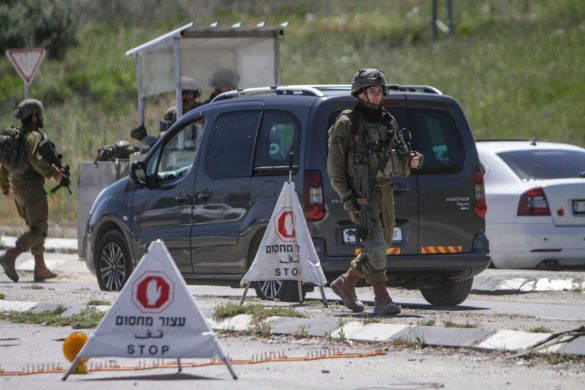Rivalerne til magten i Yemen positionerer sig. Præsident Ali Abdullah Salehs sønner og nevøer ligesom den magtulde Ahmar klan gør sig klar til en kamp om magten, mener Internationale korrespondenter. Landets vicepræsident er fungerende statsoverhoved, .efter den angiveligt hårdt sårede præsident måtte forlade landet for at blive behandlet i Saudi Arabien.
BBC News har tegnet portrætter af hovedpersonerne i den politiske arena, hvor der tilsyneladende lægges op til et opgør mellem landets to store klangrupper.
Der er ingen kvinder blandt nøglefigurerne. Kvinders rettigheder er ikke på Yemens politiske dagsgorden. Men Hameed al-Ahmar, en af Yemens mest magtfulde mænd, har dog udtalt, at verden har forandret sig og at der er plads til kvinde. Bare ikke nu.
Præsident Ali Abdullah Saleh, der nærmer sig 70 år, beskrives som en sejlivet politisk overlever. Han, der begyndte sin vej til magten via et militær kup, har beskrevet det at regere Yemen som ” at danse på slangehoveder”. Hans tilbagevenden til præsidentposten anses ikke for sandsynlig.
Om Saleh’s familie skriver BBC News blandt andet:
President Saleh’s family hail from the Hashid tribal confederation, one of the two main tribal groupings in Yemen.
His eldest son, Ahmed Ali Abdullah Saleh, was widely suspected of being groomed to take over from his father before the popular uprising started. In an early bid to appease the protesters, President Saleh publicly guaranteed that he would not inherit the presidency.
Ahmed was born in 1970. After school in Yemen, he studied in the US and at Britain’s elite military academy at Sandhurst. He was elected to parliament for Sanaa in 1997 and appointed as head of the Republican Guard in 2000.
Ali Saleh al-Ahmar is another prominent son. He served as head of the Republican Guard until he was replaced by his half-brother Ahmed in 2000. He was later military attache in the Yemeni embassy in Washington, and director of the office of the head of the military.
Three nephews – Tariq, Yahya and Ammar – command security and intelligence units and have also been positioning themselves ahead of the expected transition. Yahya controls the central security services and anti-terrorism forces. Tariq is the commander of the special presidential guard and Ammar heads the national security forces.
Ammar and Yahya have co-operated with the US in fighting terrorism. Many Yemenis believe their presence in this transitional period is essential and welcomed by regional and international powers.
Ahmar clan
The Ahmar family comes from the Amran governorate, just north of Sanaa and the heartland of the Hashid tribal federation. The family was headed by Abdullah bin Hussein al-Ahmar, founder of the Islamist Islah party, until his death in 2007.
Sheikh Sadiq al-Ahmar is now the overall leader of the tribal confederation. But he is seen as less powerful than his father, and is flanked by a number of prominent brothers.
The most high profile is Hamieed al-Ahmar, a businessman and leading member of Islah, who is reported to have been plotting against President Saleh for years. He has repeatedly called for Mr Saleh’s resignation.
Along with other businessmen he is believed to be providing financial backing for the demonstrators, and his Sabafon mobile mobile network has sent out text messages with the times and locations of protests.
Other brothers have recently stepped down from official positions as the political unrest in Yemen has
escalated. Sheikh Hussein bin Abdullah al-Ahmar, quit President Saleh’s Governing People’s Council on 28 February over the shootings of protesters, and Himyar, was deputy speaker of parliament before he resigned in March.
Gen Ali Mohsen
A further figure expected to play a key role in the outcome of the unrest in Yemen is Gen Ali Mohsen al-Ahmar, President Saleh’s half-brother and a long-time ally of the Yemeni leader. Contrary to what his name suggests, he is not a member of the Ahmar family.
Gen Mohsen announced his support for protesters in March, following the killing of dozens of unarmed protesters by Yemeni forces, but also said his forces would continue to provide security and stability.
Over the years Gen Mohsen has played a leading role in trying to mediate Yemen’s various internal conflicts.
He is the commanding officer of the 1st armoured tank division, which has sent units to a main square in the capital. He also heads the north-west region, one of the country’s four military sections.














